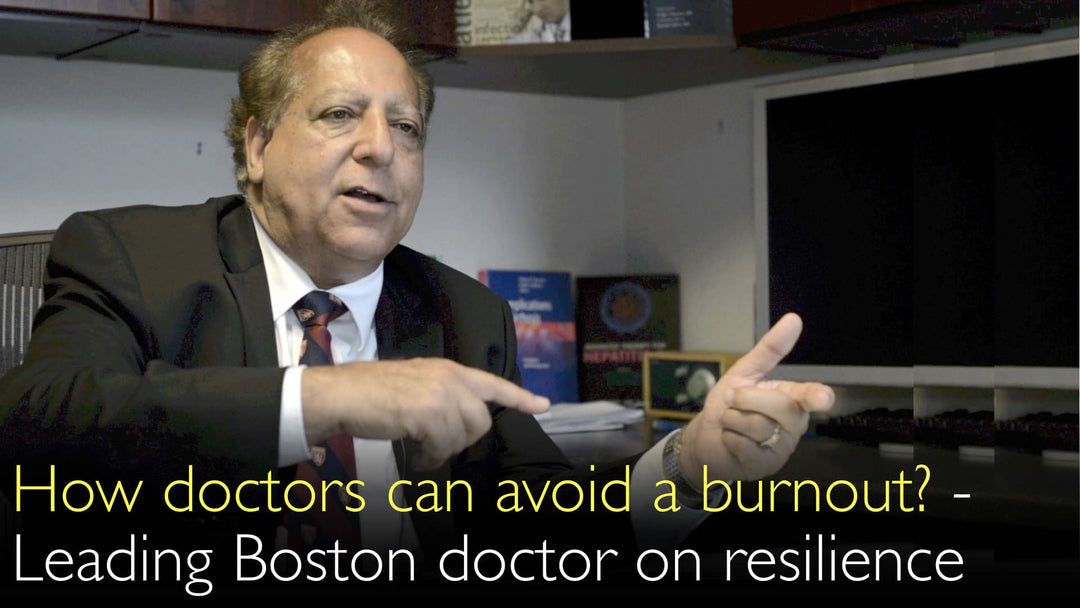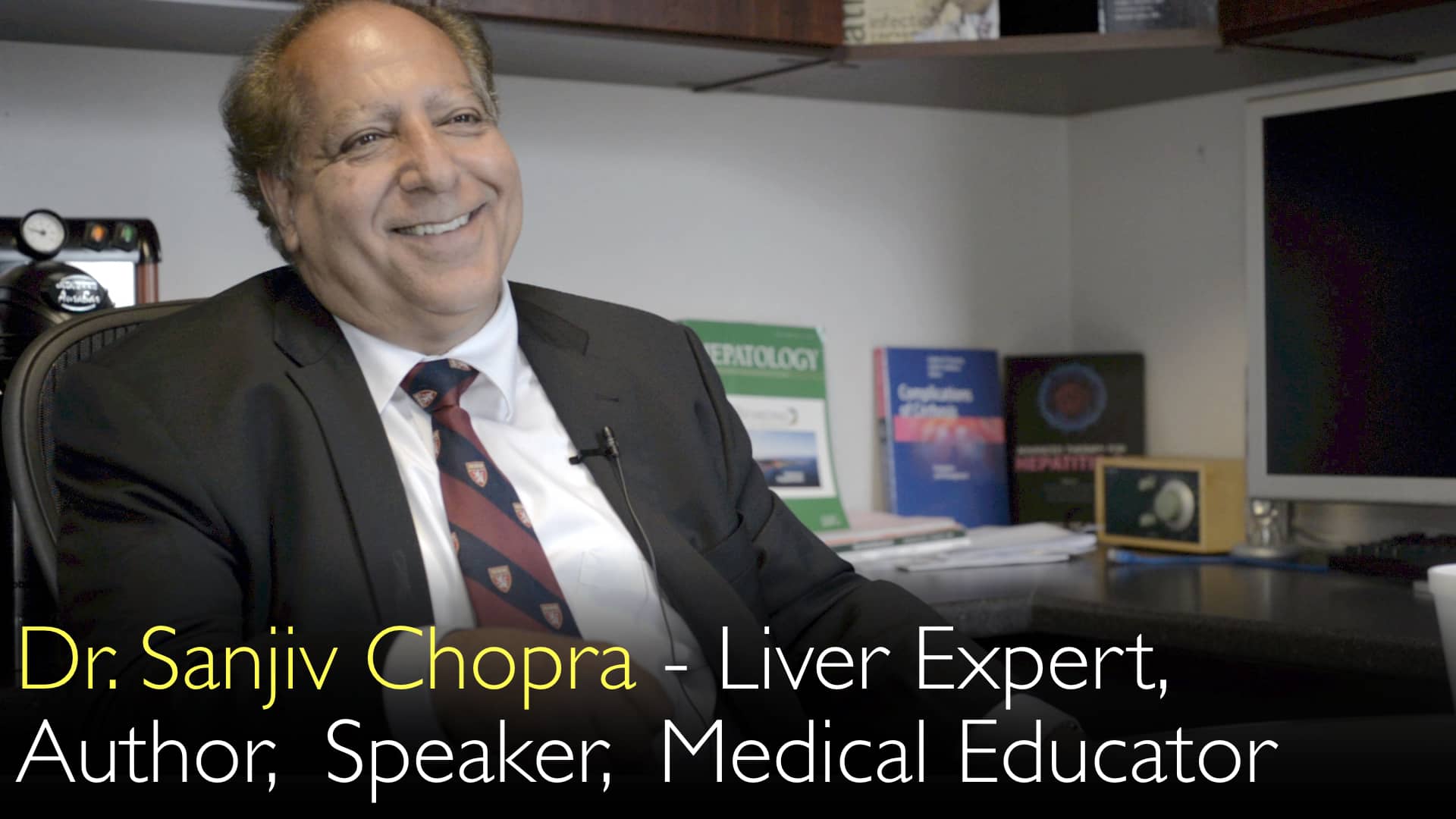O renomado especialista em bem-estar médico e prevenção de burnout, Dr. Sanjiv Chopra, MD, aborda as taxas alarmantes de suicídio entre profissionais da medicina e apresenta estratégias práticas e acessíveis para que instituições de saúde promovam resiliência. Ele destaca a importância fundamental da validação, flexibilidade e conexão social para recuperar a alegria na prática médica e evitar as consequências custosas do esgotamento, como erros clínicos e alta rotatividade de pessoal.
Prevenção da Síndrome de Burnout em Médicos: Estratégias para Resiliência e Alegria na Medicina
Navegar para a Seção
- Estatísticas Alarmantes sobre Burnout
- Estratégias Simples de Validação
- Criando um Ambiente de Apoio
- O Poder da Flexibilidade
- Aprendendo com o Google
- Crise de Burnout em Estudantes de Medicina
- Lições de Vida dos Cuidados Paliativos
Estatísticas Alarmantes sobre Burnout
A síndrome de burnout entre médicos representa uma crise grave na área da saúde, com estatísticas que, nas palavras do Dr. Sanjiv Chopra, são "estarrecedoras". A taxa de suicídio entre médicos homens nos Estados Unidos é 1,2 vez maior que a média nacional. Entre as mulheres médicas, o risco é ainda mais elevado, com uma taxa 2,2 vezes superior. Os dentistas enfrentam o cenário mais extremo, com uma taxa de suicídio cinco vezes acima da média nacional.
O Dr. Chopra atribui essa epidemia ao fato de os médicos trabalharem mais do que nunca, em meio a crescentes encargos administrativos e burocráticos. Um fator crítico é a sensação de não serem reconhecidos ou valorizados por seus imensos esforços, o que corrói a alegria profissional e contribui para um sentimento de isolamento e desespero.
Estratégias Simples de Validação
Combater o burnout médico começa com atos simples e de baixo custo que fazem a equipe se sentir valorizada. O Dr. Sanjiv Chopra sugere que os hospitais ofereçam acesso fácil a água, café e lanches saudáveis, como nozes ou frutas. Embora representem uma despesa modesta para a instituição, esses gestos demonstram cuidado e podem melhorar significativamente o moral diário.
O argumento financeiro para essas medidas é convincente. O Dr. Chopra observa que o custo para substituir um único médico ou enfermeiro com burnout chega a dezenas de milhares de dólares. Além disso, o burnout está diretamente correlacionado com um maior risco de erros médicos, o que expõe profissionais e instituições a litígios por imperícia.
Criando um Ambiente de Apoio
Uma estratégia fundamental para construir resiliência é a criação de uma sala silenciosa dentro do hospital. O Dr. Sanjiv Chopra enfatiza que esse espaço permite que a equipe medite, ore, simplesmente sente em silêncio ou ouça música. Oferece um reset mental crucial durante plantões estressantes, funcionando como um santuário para mindfulness e reconexão.
Essa abordagem reconhece que o ambiente de alta pressão da saúde exige espaços intencionais para descompressão. Prover esse recurso é uma forma tangível de a administração hospitalar demonstrar que prioriza o bem-estar mental da equipe em detrimento da produtividade implacável, apoiando assim a sustentabilidade das carreiras a longo prazo.
O Poder da Flexibilidade
A flexibilidade institucional é um antídoto poderoso contra o burnout médico. O Dr. Chopra cita um exemplo claro: acomodar uma mãe que precisa sair às 15h30 duas vezes por semana para buscar o filho na creche. Em vez de forçá-la a uma correria estressante, a solução pode envolver um ajuste salarial leve ou a compensação das horas em um fim de semana.
O Dr. Chopra também defende modelos criativos de equipe, como empregar dois médicos em tempo parcial em vez de um em tempo integral. Essa flexibilidade ajuda a prevenir o burnout ao permitir uma melhor integração entre trabalho e vida pessoal, reduzindo a tensão constante que leva ao esgotamento.
Aprendendo com o Google
O valor da conexão social e de recompensas experienciais—em vez de bônus monetários—é ilustrado por um experimento do Google que o Dr. Sanjiv Chopra destaca. Em vez de conceder bônus em dinheiro, a empresa levou seus melhores desempenhos e seus parceiros em uma viagem de oito dias com todas as despesas pagas para a Costa Rica.
O resultado foi esmagadoramente positivo. Os participantes relataram que a viagem—que custou US$ 18.000 por casal—foi muito mais valiosa que um cheque de US$ 100.000 ou US$ 200.000. O Dr. Chopra ressalta que a experiência promoveu networking, fortaleceu relacionamentos e criou memórias duradouras, validando os funcionários de um modo que o dinheiro não consegue. Ele incentiva instituições médicas a aplicarem esse princípio por meio de reconhecimento público, prêmios e mensagens que celebrem conquistas.
Crise de Burnout em Estudantes de Medicina
Preocupantemente, a crise de burnout não se limita aos médicos em atividade—começa muito antes. O Dr. Chopra cita um estudo recente que mostra que 60% dos estudantes do terceiro ano de medicina nos EUA já exibem sinais de burnout. Esses indivíduos nem começaram oficialmente suas carreiras, mas o sistema de formação já está minando seu bem-estar.
Para combater isso, o Dr. Chopra defende uma mudança cultural para resgatar a alegria na medicina. Ele recomenda celebrar milagres e triunfos médicos, como pesquisas inovadoras com células-tronco ou transplantes bem-sucedidos. Compartilhar histórias—como a de um estudante que fez um diagnóstico brilhante que deixou clínicos experientes perplexos—ajuda a reconstruir um senso de propósito e admiração essencial para a resiliência.
Lições de Vida dos Cuidados Paliativos
O Dr. Chopra conclui com uma reflexão poderosa sobre prioridades na vida, inspirada nos arrependimentos de pacientes em cuidados paliativos. Ele lista os cinco mais comuns: "Eu deveria ter viajado mais", "Eu deveria ter passado mais tempo com meus amigos", "Eu deveria ter sido a pessoa maior e pedido desculpas", "Eu deveria ter tido a coragem de perseguir meus sonhos" e "Eu deveria ter dito eu te amo com mais frequência".
Como observa o Dr. Chopra, ninguém em seu leito de morte lamenta não ter trabalhado mais ou ganhado mais dinheiro. A lição para médicos e demais profissionais é profunda: integrar esses valores agora—priorizando relacionamentos, coragem e amor—para evitar esses mesmos arrependimentos no futuro.
Transcrição Completa
Dr. Sanjiv Chopra, MD: Quero mencionar outra coisa que você perguntou: o que fazemos com o burnout e a resiliência dos médicos? Esse é um tema sobre o qual falo muito, porque as estatísticas são estarrecedoras. A taxa de suicídio entre médicos homens nos EUA é 1,2 vez maior que a média nacional. Entre as médicas, é 2,2 vezes maior. Entre dentistas, é 5 vezes maior.
O que está acontecendo? As pessoas sentem que trabalham cada vez mais, há muita burocracia, e falta reconhecimento e validação.
Há coisas simples que podemos fazer para validar as pessoas, resgatar a alegria na medicina e evitar o burnout. Incluem permitir acesso a água, café e lanches como nozes ou frutas. Não é caro para um hospital fazer isso, especialmente comparado aos custos do burnout.
O burnout leva à substituição de profissionais. Custa dezenas de milhares de dólares substituir um médico ou enfermeiro. Com burnout, há mais erros—e maior exposição a litígios por imperícia.
Precisamos criar um ambiente hospitalar que favoreça o bem-estar. Segundo, é preciso ter uma sala silenciosa para meditar, orar, ouvir música ou apenas ficar em silêncio.
Terceiro, devemos permitir mais flexibilidade. Se uma mulher precisa buscar o filho na creche duas vezes por semana às 17h, não podemos marcar sua última consulta às 16h ou 16h15. Deixe-a sair às 15h30 nesses dias, e compensar as horas num sábado ou ter um ajuste salarial. Podemos empregar duas pessoas em meio período em vez de uma em tempo integral.
Hidratação, silêncio, meditação, mindfulness, exercício, flexibilidade de horário e validação. O Google fez algo interessante: em vez de dar bônus de US$ 100.000 ou US$ 200.000, levou seus melhores funcionários e parceiros à Costa Rica por oito dias, tudo pago.
Eles se divertiram, fizeram networking, conheceram colegas pessoalmente. Quando perguntados o que foi mais valioso—a viagem ou o bônus em dinheiro—todos escolheram a viagem.
A conexão social é fundamental. O experimento custou US$ 18.000 por casal—menos que US$ 100.000—e mostrou o valor de reconhecer as pessoas. Um prêmio, um certificado, um e-mail para o grupo elogiando alguém… são gestos simples que fazem diferença.
Há um estudo recente: 60% dos estudantes do terceiro ano de medicina já apresentam elementos de burnout. Eles nem começaram a carreira! O que estamos fazendo?
Precisamos resgatar a alegria celebrando a medicina—contando histórias de nascimentos milagrosos, pesquisas com células-tronco, transplantes incríveis, ou um estudante que fez um diagnóstico surpreendente. Precisamos desacelerar.
Termino com cinco frases comuns: "Eu deveria ter viajado mais", "passado mais tempo com amigos", "sido a pessoa maior e pedido desculpas", "tido coragem de perseguir meus sonhos" e "dito eu te amo mais vezes".
Quem diz isso? Pessoas em cuidados paliativos, quando questionadas sobre seus maiores arrependimentos. Ninguém diz: "Eu deveria ter trabalhado mais" ou "ganhado mais dinheiro". A lição é: vamos viver esses valores agora, para não nos arrependermos depois.
Dr. Anton Titov, MD: Professor Chopra, muito obrigado por esta conversa fascinante! Será de grande interesse para pessoas no mundo todo. Esperamos conversar novamente no futuro. Muito obrigado!
Dr. Sanjiv Chopra, MD: Muito obrigado, foi um prazer!





